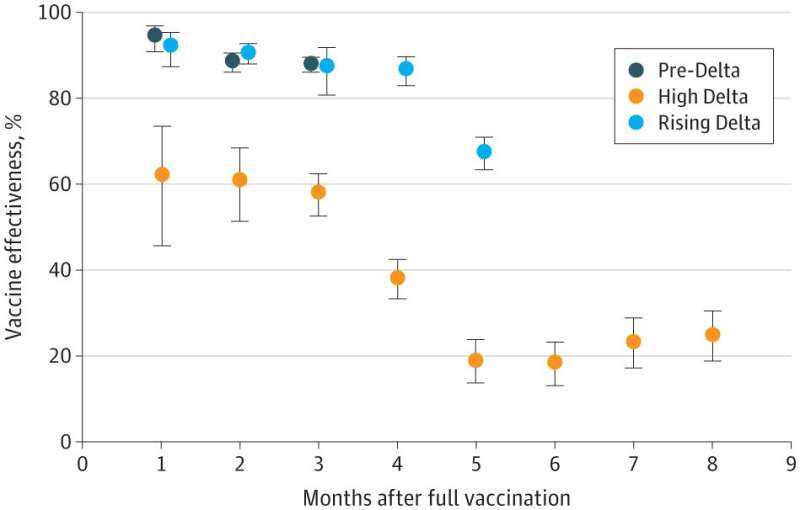
A team of researchers working at the White River Junction Veterans Affairs Medical Center in Vermont reports that the efficacy of the two mRNA vaccines from Pfizer and Moderna declined in aging veterans more quickly than has been reported in other studies. In their JAMA Network Open Research Letter, the group describes their study of the effectiveness of the mRNA vaccines against COVID-19 in 1,363,180 men 65 years or older who were enrolled in the Vermont VA system.
To learn more about how well the two main mRNA vaccines protect older people, the researchers conducted a three-part study in which they measured the effectiveness of the vaccine during three stages of the pandemic: pre-delta, emerging delta and high delta, with delta referring to the SARS-CoV-2 variant.
All of the veterans in the study were vaccinated in January or February, 2021. The pre-delta test phase was conducted from January to April; the second was conducted over May to June; the third from July through September.
As expected, the researchers found that the protection afforded by either vaccine was high during the pre-delta phase, with effectiveness measured at 94%. But they found that the effectiveness dropped to 87.9% after three months. Then, after the delta variant arrived, things changed dramatically. The efficacy of the vaccine dropped to 62% in the first month and then down to 57.8% after three months. And after five months efficacy dropped to just 20%—a noticeably larger dip than has been seen in other similar studies.
Source: Read Full Article
